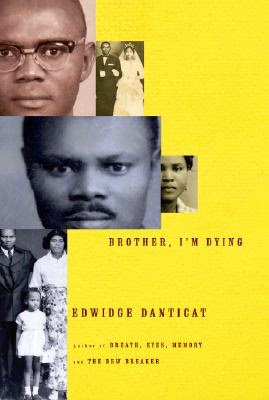This content is being reviewed in light of recent changes to federal guidance.
HBW Emerging Scholars: Edwidge Danticat and the Collective Self
 Editor’s Note: The HBW Blog is introducing a new blog series, Emerging Scholars, that offers graduate student scholars the chance to post pieces that speak to their own critical interests in more depth than a usual blog post. Caroline Porter, currently pursuing her M.A. in Literature at KU, inaugurates the series with a post on HBW favorite Edwidge Danticat.
Editor’s Note: The HBW Blog is introducing a new blog series, Emerging Scholars, that offers graduate student scholars the chance to post pieces that speak to their own critical interests in more depth than a usual blog post. Caroline Porter, currently pursuing her M.A. in Literature at KU, inaugurates the series with a post on HBW favorite Edwidge Danticat.
Edwidge Danticat is a Haitian–American writer well known for her fiction, including her award-winning books Breath, Eyes, Memory, The Dew Breaker, and Krik? Krak! However, 2007’s Brother, I’m Dying tells her own story, or so it seems. Though the book has been labeled “autobiography,” Danticat concentrates primarily on the lives of her family members rather than on her own.
The work even features Danticat narrating events that happened before she was born, but she does not use these stories as a frame or preface for her own story like many other autobiographies do. Instead, Danticat’s narrative jumps back and forth between the relatively distant past, her childhood, and her adulthood, but even when she tells readers that, for example, she’s pregnant, the focus of the narrative is actually on her father. What is so interesting about this is what it suggests about Danticat’s “self,” how that self was affected by trauma, and how it was pieced back together through narrative.
In Brother, I’m Dying, Danticat represents the self as discursive; it shifts throughout her life, but it is formed in relation to others and heavily relies on others for its continued existence. Thus, the formation of self depends primarily on whom one is around and one’s cultural context. If we follow this line of thinking, trauma of the kind that we see in Brother, I’m Dying would disrupt or destroy that self–or, more precisely, the formation or understanding of that particular self–because it uproots the self from its specific sociocultural context.
Autobiographical theorists see the act of writing a memoir or autobiography after trauma as an attempt to piece the self together again. Interestingly, Danticat’s post-traumatic reconstruction of her “self” seems to rely heavily on the imagined or inherited memories of others. Danticat was not in Haiti when the local gang leaders, known as dreads, were chasing after her uncle, nor was she with him as he was dying in prison, but through telling his story, she tells her own.
Therefore, Danticat’s self is formed in relation to others, as well as comprised not just of her own “narrative” (or story, or cultural situation) but also of the narratives of others. In other words, her “self” is affected by others, but also contains others, both figuratively and literally: in Brother, I’m Dying, the author’s memories of her own life
physically bookend the life stories of others; her most explicit
representations of herself literally surround stories of others. It is this notion of Danticat’s self that makes the genre of this book so hard to pin down–and so fascinating for readers.